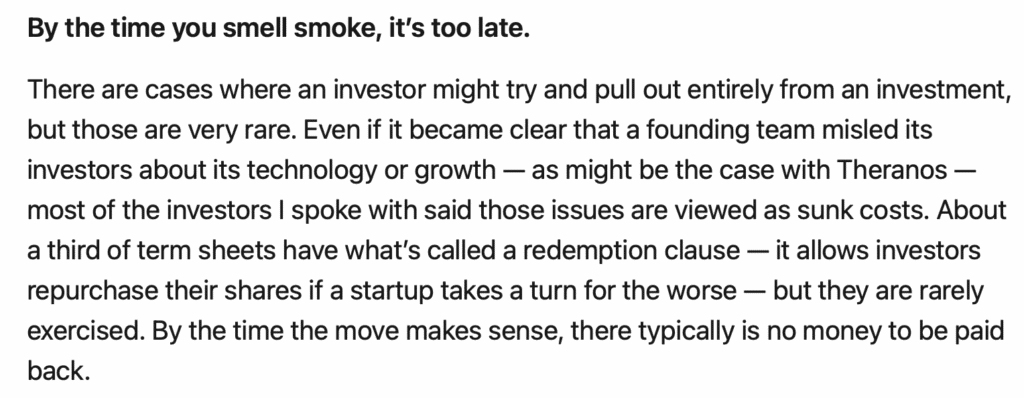I’m a bit of a nerd when it comes to business news. When I was grappling with the fallout of being cheated on, I realised how cheating could be compared to financial frauds, and the parallels we can draw between the two. Being cheated on is a very emotional affair, so thinking about this in terms of financial fraud helped to sharpen my mind and logic.
When it comes to relationships and investments, the currency that matters most is trust. Once broken, it’s nearly impossible to fully restore. Just like savvy investors avoid companies with shady accounting practices, smart daters should think twice before putting their emotional capital into someone with a history of cheating.
What Financial Frauds Can Teach Us About Relationships
Enron, once a Wall Street darling, used complex accounting tricks like off-balance-sheet entities to hide massive debts and inflate profits. Executives misled investors and regulators, creating the illusion of a thriving business while the company was financially unstable. When the truth emerged in 2001, Enron collapsed in the largest bankruptcy of its time, devastating employees and shareholders.
When a company’s stock tanks because of disappointing quarterly results, investors might reasonably argue the market overreacted. But when a company plummets because management has been lying? That’s a different story entirely. Financial statements are already tricky things to navigate when full disclosure is made. If the numbers are fudged and customers numbers are deliberately made up, it can be immensely difficult, if not impossible, to detect before it’s too late. Enron’s use of special purpose vehicles was a particularly innovative feat of financial engineering, so it would have been hard to catch.
The same logic applies to relationships. There’s a world of difference between a partner who disappoints you by forgetting your anniversary and one who betrays your trust by cheating. The first is a performance issue. The second reveals a character problem. Similarly, it can be immensely difficult to catch on to cheating, especially with privacy-centric tools such as Snapchat and Telegram that automatically remove evidence. As such, in the absence of draconian monitoring that could border on unhealthy toxicity, we have to rely on the implicit faith that our partners are above doing something so despicable.
When Trust Becomes Too Expensive
Some investors might justify buying shady stocks if the price falls low enough: “Sure, Enron engaged in fraud, but if I could buy it for pennies, I’d at least get those fancy office chairs and sell them off!”. This thinking doesn’t translate to relationships. Unlike companies, which can be valued based on assets, the cost of a relationship is always the same: your time, emotional energy, and trust. These are resources you’ll never get back if wasted on someone untrustworthy.
The effects of being cheated on can be long-lasting and very discomfiting. Every interaction becomes coloured by suspicion. Every late night at work, every unexplained absence, every guarded phone conversation reinforces a nagging question: “Is it happening again?” This hyper vigilance creates a tax on your emotional wellbeing that compounds daily.
Frank, a college financial aid platform, was acquired by JPMorgan Chase based on claims of having over 4 million users. Its founder, Charlie Javice, fabricated user data to inflate the company’s value, even hiring a data scientist to create fake customer lists. The fraud was discovered when most of the supposed users’ emails bounced, resulting in federal fraud charges against Javice.
In the investment world, we would call this an unsustainable burn rate. At some point, you have to ask yourself if the emotional capital you’re spending is worth the uncertain returns in seeking a relationship with a cheater, or worse, in reconciling with someone who cheated on you.
Rebuilding After Betrayal: Is It Even Possible?
Rebuilding trust after cheating is challenging and often lengthy. The process is fraught with risk and can plunge the victim back into a purgatory of feeling terrible if the cheater relapses. It requires both partners to engage in honest communication and express their feelings without judgment. The person who cheated must demonstrate genuine remorse and commit to making amends. The wounded partner must also be open to forgiveness and patient with the process.
In a financial investment, you might accept higher risk for potential financial gain. Even a risky penny stock can be an attractive proposition if the potential upside compensates for the downside. Unfortunately, relationship investments offer no such premium. The emotional toll is substantial, with no guaranteed return. Do not make the mistake of thinking that your current relationship, tainted as it is by cheating, is worth much more than the connection that you could form by starting anew. Just because you have irreversibly invested into the current relationship doesn’t mean that you should continue to throw more time into a futile venture.
Avoiding the sunk cost fallacy
Many investors have fallen prey to the sunk cost fallacy, even if they profess to be phlegmatic in their investing strategy. Take Theranos, for instance. Theranos claimed to revolutionise blood testing with technology that could run hundreds of tests from a single drop of blood. In reality, the technology was nonfunctional, and the company secretly relied on traditional machines while misleading investors, doctors, and patients. The fraud unraveled in 2015, leading to criminal convictions for founder Elizabeth Holmes and the company’s collapse.
In her analysis of Theranos, alongside other startups, Caroline Fairchild notes that the sunk cost fallacy can interfere with making optimal investment decisions:

Source: https://www.linkedin.com/pulse/what-investors-really-thinking-when-unicorn-startup-fairchild/
Similarly, many victims of infidelity are afraid to leave because they see the time and emotion they have put into the relationship as a sunk cost. That means they continue to stay in a toxic relationship, floundering while trying to return to a happier time before the infidelity occurred. Unfortunately, this often makes them worse off, just like an investor who fails to exercise the redemption clause in a timely fashion.
Making the smart investment choice and doing due diligence
Just as financial advisors suggest avoiding known frauds, you should evaluate potential partners based on their history of trustworthiness. Past behaviour remains the best predictor of future actions. Whether they cheated on you or somebody else, it is a major due diligence red flag. These won’t often be available – after all, a fraud is going to try and cover their tracks. Even the best investors get duped in billion dollar transactions, so you cannot blame yourself for being lied to by a cheater. If you are however privileged enough to know about their background of cheating, I would recommend that you heed it.
When someone shows you who they are through deception, believe them the first time. Some people ridicule investors for investing in Adam Neumann’s Flow startup after the collapse of WeWork. Doubling down on a relationship with a cheater is similar when viewed rationally, though I would acknowledge that the emotional aspect of a relationship means that some people still pursue this irrational course of action, and I wish them the best.
The bottom line? Whether in finance or love, integrity matters. And while second chances sometimes pay off, entering any relationship with someone who has demonstrated a willingness to cheat requires careful consideration of whether you’re making a sound investment or throwing good emotional money after bad. The critical difference is that with financial fraud, you might lose money. With infidelity, you stand to lose a piece of yourself that can be much harder to recover.
Take care of yourself. You’re stronger than you know, and you will get through this.
Join the Discussion on Reddit

